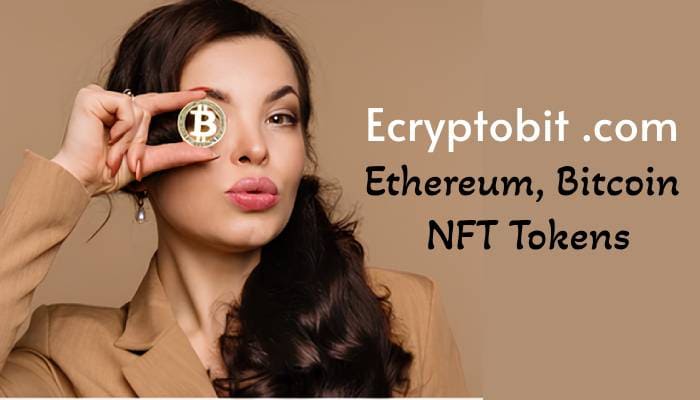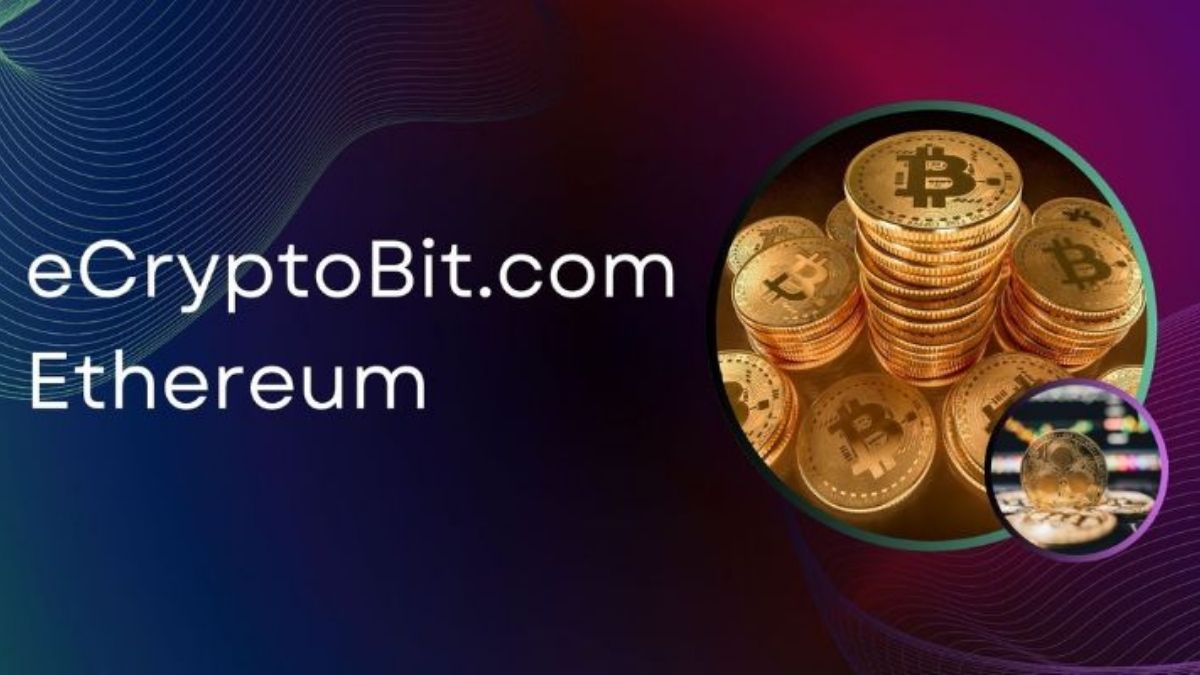In today’s digital revolution, ecryptobit.com Ethereum stands tall as one of the most transformative blockchain technologies of the 21st century. As decentralized applications (dApps), smart contracts, and Web3 innovation gain momentum, Ethereum continues to be at the heart of this ecosystem.
At ecryptobit.com, we are committed to bringing you the latest updates, detailed guides, and educational content around Ethereum to empower investors, developers, and blockchain enthusiasts. Whether you’re a beginner trying to understand ETH or a seasoned crypto investor diversifying your portfolio, this in-depth article will help you understand everything you need to know about Ethereum in 2025 and beyond.
What is Ethereum?
Ethereum is an open-source, blockchain-based platform that allows developers to build and deploy smart contracts and decentralized applications (dApps). Launched in 2015 by Vitalik Buterin and a team of co-founders, Ethereum goes far beyond just sending or receiving cryptocurrency—it offers an entirely new way of using the internet, with its own native coin known as Ether (ETH).
Unlike Bitcoin, which is primarily a digital currency and store of value, Ethereum’s main purpose is to act as a decentralized software platform that runs without any downtime, fraud, control, or interference from a third party.
Key Features of Ethereum
1. Smart Contracts
Smart contracts are lines of code that automatically execute when predefined conditions are met. With Ethereum, these contracts are stored on the blockchain and run exactly as programmed. This eliminates the need for intermediaries, reducing costs and increasing trust between parties.
2. Decentralized Applications (dApps)
Ethereum’s infrastructure supports thousands of dApps. These applications are not owned by a single entity and are free from censorship. Popular categories include finance (DeFi), gaming, NFTs, and social media platforms.
3. Ether (ETH)
ETH is the native cryptocurrency used to pay for computational services and transaction fees on the Ethereum network. It acts both as a digital currency and as “fuel” for the Ethereum network.
4. Ethereum Virtual Machine (EVM)
The EVM enables developers to create decentralized applications using well-known coding languages. Every node in the Ethereum network runs the EVM, ensuring the same results across the board.
Ethereum 2.0 – The Game Changer

ecryptobit.com Ethereum scalability and energy efficiency have been long-debated topics. In response, Ethereum introduced a significant upgrade through Ethereum 2.0, also known as The Merge.
✅ Transition to Proof of Stake (PoS)
Previously, Ethereum used Proof of Work (PoW)—similar to Bitcoin—which required massive computational power. However, in September 2022, Ethereum successfully shifted to Proof of Stake, significantly reducing energy consumption by over 99.95%.
✅ Sharding (Future Upgrade)
Sharding is another anticipated update that will split the Ethereum network into smaller parts, increasing transaction throughput and reducing congestion.
✅ Increased Security and Scalability
Ethereum 2.0 lays the foundation for a more secure and scalable network, preparing it to support worldwide adoption of Web3 technologies.
Top Use Cases of Ethereum
Ethereum is more than just a blockchain—it’s a world computer. Below are some of the most popular use cases of Ethereum in 2025:
🌐 Decentralized Finance (DeFi)
Ethereum leads the DeFi movement, which aims to replace traditional financial services such as lending, borrowing, and trading with blockchain-based protocols. Platforms like Uniswap, Aave, and Compound are some of the biggest DeFi dApps built on Ethereum.
🎨 Non-Fungible Tokens (NFTs)
Ethereum remains the primary platform for minting and trading NFTs—unique digital assets representing art, music, collectibles, and virtual real estate. Popular NFT marketplaces like OpenSea and Rarible use the Ethereum blockchain.
🎮 Play-to-Earn Games
Games like Axie Infinity, Sandbox, and Gods Unchained are changing the gaming landscape via Ethereum smart contracts. Players can earn real-world assets through in-game achievements.
🤖 DAOs (Decentralized Autonomous Organizations)
DAOs enable community-led governance where decisions are made democratically via coded smart contracts. Ethereum is the top choice for creating and managing DAOs without central leadership.
Why Ethereum is a Good Investment
As Ethereum continues to evolve, it offers significant investment potential. Here’s why you should consider Ethereum in your crypto portfolio:
- Strong Developer Ecosystem: Ethereum has the largest community of developers in the blockchain space.
- Widespread Use Cases: From DeFi to NFTs, Ethereum powers the majority of projects.
- Secure and Time-tested: Live since 2015, Ethereum has a proven track record.
- Ethereum ETFs (2025): As of 2025, spot Ethereum Exchange-Traded Funds (ETFs) are being approved in jurisdictions like the US and EU, adding legitimacy and attracting institutional investment.
How to Buy Ethereum (ETH) – A Beginner’s Guide
At ecryptobit.com, we believe in making crypto accessible for everyone. Here’s a quick step-by-step guide to buying Ethereum:
- Choose a Crypto Exchange
Top exchanges like Binance, Coinbase, Kraken, and eToro support ETH purchases. - Create an Account
Register with your email and complete the KYC (Know Your Customer) process. - Deposit Funds
Use a bank transfer, debit card, or credit card to fund your account. - Buy Ethereum (ETH)
Search for Ethereum and place your order based on the current market price. - Secure Your ETH
Transfer your ETH to a secure wallet such as MetaMask, Ledger Nano X, or Trezor.
Ethereum vs. Bitcoin – Key Differences
| Feature | Ethereum | Bitcoin |
|---|---|---|
| Purpose | Smart contracts, dApps | Store of value, peer-to-peer payments |
| Launch Year | 2015 | 2009 |
| Consensus Mechanism | Proof of Stake (PoS) | Proof of Work (PoW) |
| Transaction Speed | 15–20 TPS (scalable with Layer 2) | 3–7 TPS |
| Use Cases | Finance, NFTs, gaming, governance | Digital gold, payments |
While Bitcoin pioneered the crypto space, Ethereum expanded the possibilities of blockchain technology.
Risks and Considerations
While Ethereum offers incredible opportunities, it’s essential to understand the risks:
- Volatility: ETH is still a volatile asset, and prices can fluctuate daily.
- Regulatory Concerns: Global governments are still shaping crypto regulations.
- Network Fees: During high congestion, gas fees can spike, although Layer 2 solutions are helping.
Future of Ethereum: What’s Next in 2025 & Beyond?
As we look ahead, Ethereum is preparing for mass adoption. Here are some trends and developments to watch:
- Layer 2 Adoption: Solutions like Arbitrum, Optimism, and zkSync will reduce gas fees and increase speeds.
- Enterprise Integration: More companies are adopting Ethereum-based solutions.
- Rollups and Zero-Knowledge Proofs: Enhancing privacy and scalability.
- Mainstream Institutional Investment: With Ethereum ETFs and financial integrations, more big players are entering the game.
Final Thoughts – Why Ethereum Matters | ecryptobit.com
Ethereum is not just another cryptocurrency—it’s a foundational layer for the decentralized internet of the future. From enabling smart contracts to powering DeFi, NFTs, and DAOs, Ethereum continues to lead the blockchain revolution.
At ecryptobit.com, we’re passionate about educating our readers, offering expert insights, and guiding you through the world of Ethereum. Whether you’re investing, building, or just exploring, keeping Ethereum on your radar is a smart choice.
Frequently Asked Questions (FAQs)
❓ Is Ethereum a good investment in 2025?
Yes, with the transition to Ethereum 2.0, growing DeFi adoption, and institutional interest, ETH is considered a strong long-term asset.
❓ How do I store Ethereum securely?
The safest way is to use a hardware wallet like Ledger or Trezor. For quick access, Web3 wallets like MetaMask are also popular.
❓ Can I stake Ethereum?
Yes. With Ethereum’s PoS mechanism, you can stake your ETH and earn passive income through various platforms.
❓ What are Ethereum gas fees?
Gas fees are the transaction fees required to perform actions on the Ethereum network. They vary based on network congestion.



